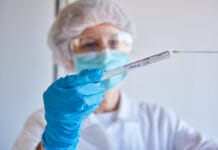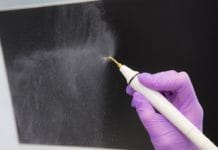Has anyone asked you how the COVID-19 epidemic has affected you, our dental professionals? We hear about the effects that the disease has on doctors and emergency personnel, who are no doubt heroes, but those of us who spend our days literally in the mouth of danger are tremendously affected as well. Italy has an excruciating number of infected individuals. In fact, they are in the top three countries in the world with the most cases.
Ugo Consolo, Pierreantonio Bellini, and their colleagues at the University of Modena decided to look specifically at their region, containing Modena and Reggio Emilia, in their study: Epidemiological Aspects and Psychological Reactions to COVID-19 of Dental Practitioners in the Northern Italy Districts of Modena and Reggio Emilia. These two areas have been hit hard with the virus, and the scientists were interested in the effects that the disease has on the local dental practitioners and their patients. Most importantly, the study questions the reactive behaviors, their emotions, worries, and concerns of dentists and their teams to the disease and the necessary measures that they took to protect everyone involved.
The Survey
Forty percent out of 874 dentists who received a survey questionnaire concerning their area’s socio-demographic characteristics, the dental professionals’ opinions and outlook on the virus, and details of their infection control protocol responded in full. General psychological determinants could be made from these answers.
Dentists and their teams made themselves available for emergency services during the spread of the disease, and almost all the respondents completed telehealth appointments with their patients in the days before any procedures. Almost ninety percent of the practices limited their patients on an as-needed basis. The fewer the patients, the better for everyone.
The Answers
Seventy percent of these practices did their best to consistently provide surgical masks and hand sanitizer to those entering the building, but an extremely low number of these practices took body temperatures of those coming in for treatment or on those working with the patients. This may seem odd due to the simplicity of the action itself and the reliability of such information for diagnosis. If a global attempt is being made to isolate those with the disease to prevent the spread of the coronavirus, and the fact that a high bodily temperature suggests infection, it would make perfect sense to take the temps of everyone entering the building.
Just over one percent of respondents came down with the illness (while treating emergencies only) though almost seventy percent of those questioned knew of someone who contracted the disease. It has affected the area deeply. Most of the practitioners responded that their fear of contracting the illness from a patient caused various degrees of psychological distress. This coincides with similar studies taken in other parts of the world, even those areas with a minimal infection rate.
This also means that many medical professionals, consistent with what we know of the general human condition, are more concerned with their own health than that of their patients. Anxiety, concern, and general sadness are reported, but thankfully, any emotions involving anger are minimal. The emotional reading of the questionnaire leads the researchers to believe that the majority of dental workers are compassionate, empathetic, and generally worried about their patients, but feel the same, only more so, for their personal families, which is why they seem to be more concerned for their safety over that of their patients.
The Analysis
Pandemics are never great for our economy, and that fact seems to weigh heavily in the hearts of dentists and their teams. A lot is unknown. Will we have a steady supply of masks and gloves? Will we have to make permanent changes in our patient-caretaker relationships? Will we have to alter our equipment or even our entire approach to the practice to protect ourselves and our families? All in all, the profession is changing and maybe changing dramatically.
The majority of respondents believe that change, even a massive overhaul of professional improvements, are coming and want to be prepared for a new era of stronger personal protective equipment and safer, less invasive procedures. Telehealth has become surprisingly helpful, and PPE has become more and more important all over the world.
Most views on the pandemic, especially in a hard-hit place, are understandably pessimistic and even fatalistic. This is to be expected. But those at the University of Modena believe that positive changes can come out of such a negative situation. Perhaps, standardized procedures and use of PPE can be implemented everywhere so that people can more easily obtain a certain standard of care in dentistry.
Finally, the researchers’ optimistically question whether this pandemic could be the end of competition between practices in Northern Italy and a movement towards a fully patient-centered practice where the money isn’t as important as the person in the chair.











